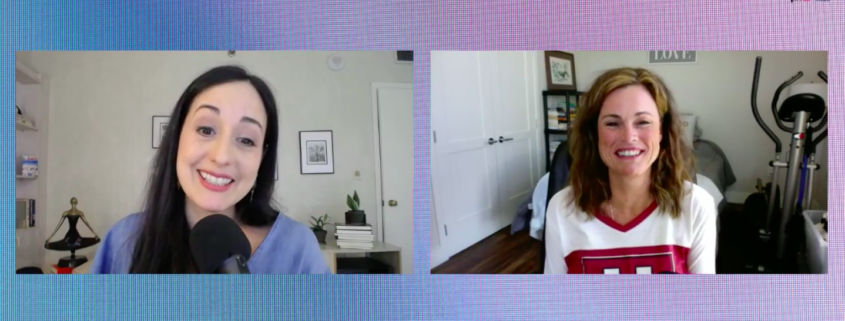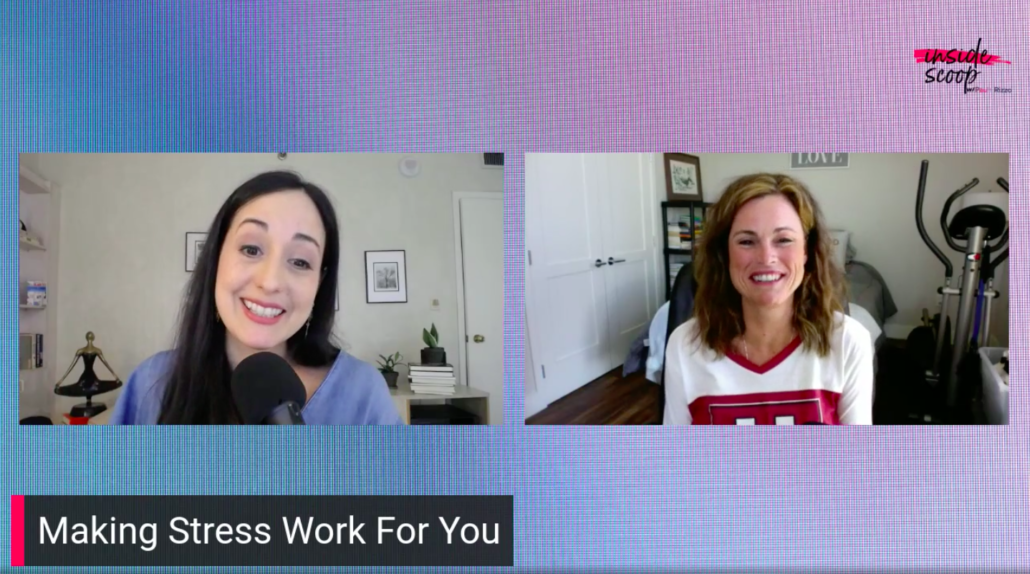Three Ways to Change Your Relationship with Stress
___
BONUS FREEBIE: Want even more ways to stay organized, productive and less stressed? Click here to get access to my List-Making Starter Kit. It will boost your efficiency and get you back to doing more of the things you love.
___
Stress expert Heidi Hanna has a saying: stressing is a blessing. If you feel skeptical about that, keep reading — Heidi convinced me, and her ideas have allowed me to take advantage of stress and make it work for my benefit.
Stress is often framed as a bad thing, but Heidi knows that there are ways to take advantage of stress to improve your mood and productivity. In her work as founder of Synergy, a consulting company that works with companies to improve performance through brain-based strategies, Heidi has developed actionable ways to change your relationship with stress.
Here are three of Heidi’s top tips to make stress work for you:
1. Stress is information.
Heidi says it’s important to recognize that stress is just information your body is giving you. Reframing stress as not something to avoid but something to listen to is important.
Heidi says stress is not inherently good or bad — it just means that the demands on you are exceeding your capacity to address them. Stress gets to be a problem when you don’t do anything with that knowledge.
2. Act on what stress is telling you.
If you ignore what stress is telling you, that’s when it turns into the kind of chronic stress that causes burnout and even medical problems. “If we don’t use it, mobilize it in some way, it will hurt us,” Heidi says.
I know this from personal experience — a few years ago, my appendix burst and I had to be hospitalized! It was an ordeal that I could have avoided if I had listened to what my body was telling me.
So how can you act on the important information stress is trying to alert you to? Heidi says it’s all about restoring your body’s equilibrium through both proactive and reactive methods.
3. Be proactive AND reactive about meeting your own needs.
You shouldn’t wait until a medical emergency to listen to what your body is telling you. Heidi says that the key is caring for yourself and becoming more resilient through proactive measures, like daily mindfulness. For example, she suggests reflecting on the positive moments at the end of your day to rewire your brain away from focusing on the negative. If you have time, you can also try bookending your day with morning and evening meditations.
When larger stress patterns pop up, you need to be reactive and have established ways to take action.
For Heidi, that means taking the time for a massage — she knows taking that hour off will help her in the long run. It might be different for you. You need to reflect about what makes you feel calmer immediately so you can take action when bigger stress hits you.
Heidi’s strategy is all about creating resilience and developing ways of processing the signals that stress is sending you. You can watch our full conversation here, and you can click here to check out her free recharge toolkit. Heidi also has LinkedIn Learning courses if you want to find more strategies for managing stress!
___
BONUS FREEBIE: Want even more ways to stay organized, productive and less stressed? Click here to get access to my List-Making Starter Kit. It will boost your efficiency and get you back to doing more of the things you love.
___






Leave a Reply
Want to join the discussion?Feel free to contribute!